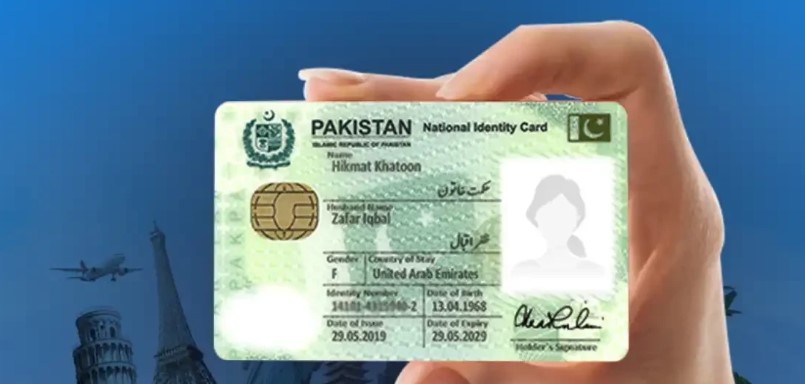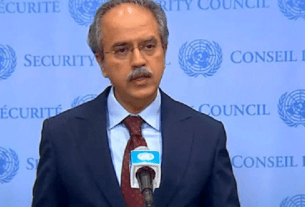1. CNIC Logo
On September 16, World Donation Day, the prime minister of shahbaz announced the establishment of the country’s first-ever organ donation program. The goal of this campaign is to increase public awareness of the vital role organ donation plays in saving lives while also promoting organ donation. It expected that the program a major effect on the country’s healthcare system, underscoring the significance of this commitment to saving lives. The addition of a unique logo on the Computerized National Identity Cards (CNICs) of individuals who opt to register as organ donors, signifying their dedication to providing the gift of life , a crucial component of the effort. National CNIC logo Emblem the Exclusive Encourage Organ Donation on September 16 in the pakistan .
The Prime Minister emphasized in his speech that giving an organ is a “important act of kindness that can provide those in need with a fresh start on life.” He exhorted people to get involved in the initiative and join a group of people who are committed to saving lives. The launch of the CNIC logo organ donor logo consistent with the main theme of International Identification Day, which emphasizes the importance of identification for inclusion, participation, and access to basic services. The CNIC logo easiy identification on special time.
2. significance of Donating Organs
Donating an organ can save lives and significantly enhance the standard of life for those with terminal or long-term illnesses. The need in Pakistan for organs like hearts, livers, kidneys, and lungs far far exceeds the supply. Many patients, many of whom have life-threatening illnesses, consequently kept on the transplant waiting list. Thousands of Pakistanis die every year from organ shortages, according to medical specialists.
Prime Minister Shehbaz Sharif’s effort an essential step toward overcoming the organ supply and demand gap in the face of these challenges. The project aims to considerably increase the rate of organ donation through promoting citizens to register as donors and making this decision visible through their CNICs.
Since there more organs available for transplantation, this project is believed to a significant effect on public health and possibly save thousands of lives. Finally, it reduce the financial stress on the families unable to travel abroad for pricey medical care.
3. CNIC’s logo Function in Organ Donation
This new initiative’s unique logo, which printed on registered organ donors’ CNICs, one of its most notable characteristics. This symbol functions as a clear representation of the person’s decision to donate their organs, facilitating the identification of donors by medical personnel in an emergency. This program uses the Computerized National Identity Card (CNIC), a document that every Pakistani citizen already has, to make the process of registering as an organ donor easy and accessible to everybody.
It is a clever and sensible move to use CNIC logo s as a forum for encouraging organ donation. It guarantees that organ donors can be easily identified and that, in life-threatening situations, their choice is accepted and honored. The government sending a strong message about the value of organ donation and the responsibilities of all citizens to support public health by incorporating this logo into the national identity.
4. Why International Identity Day Means and Why It Important
The official launch of this project on International Identity Day very symbolic. Every year on September 16, International Identity Day serves as an awareness of the vital role identity plays in promoting inclusivity and facilitating access to necessary services. Ensuring that every person access to medical care, educational opportunities, financial resources, and legal protection equally important to identity as being simply registered.
The government promoting the notion that identity used for power and constructive social change by connecting the donation of organs promotion to International Identity Day. This program big step toward making sure that more individuals in Pakistan can benefit from life-saving medical treatments like organ transplants, as access to healthcare can be unequal.
In her speech on this day, the prime minister emphasized the significance of identification CNIC logo as the “the foundation of participation, representation, and and accessibility to essential services.” An actual illustration of how identification may be utilized to advance public health and further the common good the organ donor logo created by CNIC logo.
5. Effects on the Healthcare System in Pakistan
There are many obstacles facing Pakistan’s healthcare system, especially when it comes to organ transplantation. Chronic conditions including liver disease, heart disease, and renal failure are becoming more common, and many people need organ transplants to survive. But there has been a persistent lack of organ supply, which has resulted in lengthy waiting lists and, frequently, avoidable deaths.
The goal of the national donor organs campaign is to increase the number of possible donors in order to change this. The number of organs available for transplantation will rise dramatically if more people join up as organ donors. Consequently, this will lessen the strain on the healthcare system and possibly cut the expense of medical care for individuals in need of organ transplants.
Another benefit is that by encouraging organ donation, the program fits with worldwide trends in healthcare, wherein nations with high rates of organ donation have been able to lower healthcare costs and improve patient outcomes. For instance, because of their opt-out policies, which assume that people are organ donors until they expressly opt out, nations like Austria and Spain have some of the highest rates of organ donation worldwide. Pakistan’s program is a start in the right direction towards establishing a comparable organ donation culture, even though it is still an opt-in system where people must voluntarily register as donors.
6. Cultural and Religious Issues
The idea that organ donation can go against one’s religious or cultural rulings one of the difficulties faced by organ donation campaigns in Pakistan. However, a number of researchers along with organizations representing Islam have made it clear that organ donation is not only acceptable but highly encouraged because it is seen as a charitable and humanitarian act.
Numerous eminent Islamic scholars issued fatwas, or religious judgments, endorsing organ donation—as long as it is done in an ethical manner and with the donor’s permission. These fatwas highlight the fact that saving lives, which is one of the greatest acts of charity in Islam, is consistent with organ donation.
The government has to collaborate extensively with religious leaders to dispel myths about organ donation and foster a clear understanding of the morality of the practice. Dispelling myths and encouraging more individuals to register as donors accomplished through public education efforts, religion sermons, and media involvement.
7. Movements for Public Education and Awareness
The national donation of organs initiative needs to raise public awareness and educate the public in order to succeed. Many people could be willing to give their organs, but they might not know how to sign up or they might be nervous about the procedure. Government officials will need to fund public awareness efforts to inform individuals about the advantages of organ donation and how simple it is to register through their CNICs in order to remedy this.
To reach a large audience, these campaigns ought to make use of a variety of media, such as print, radio, television, and social media. It is important to correct common misconceptions, especially those that pertain to ethical and religious issues. Public service announcements showcasing reputable medical professionals and academics from various faith traditions can foster confidence .
Social media sites plays an equally important function. Younger audiences connected through social media platforms like Facebook, Twitter, and Instagram since they frequently more open to new ideas and social problems. The government can reach a wider range of people and spread its message more effectively by utilizing social media.
8. Global Organ Donation Initiatives
It is helpful to contrast Pakistan’s organ donation program with comparable initiatives in other nations in order to gain a deeper understanding of its relevance. As previously said, opt-out systems exist in nations like Austria and Spain, where people assumed to be organ donors unless they consciously choose not to be. The effectiveness of these approaches in raising organ donation rates demonstrated.
On the other hand, opt-in systems used in nations like the US and Canada, requiring contributors to register. Even though these nations have lower organ donation rates than opt-out nations, donor registration has improved thanks to public awareness initiatives and medical advancements.
Pakistan’s effort is similar to the opt-in approach in that it aims to streamline the CNIC registration procedure. However, the initiative’s success will hinge on how successfully the government can publicize the campaign and handle issues related to culture and religion. It is possible to draw lessons from nations such as the UK, where knowledge of the value of organ donation increased through collaborations with healthcare professionals, public education campaigns, and celebrity endorsements.
Also Read: iPhone 16 Apple series Launching with AI-powered feature




